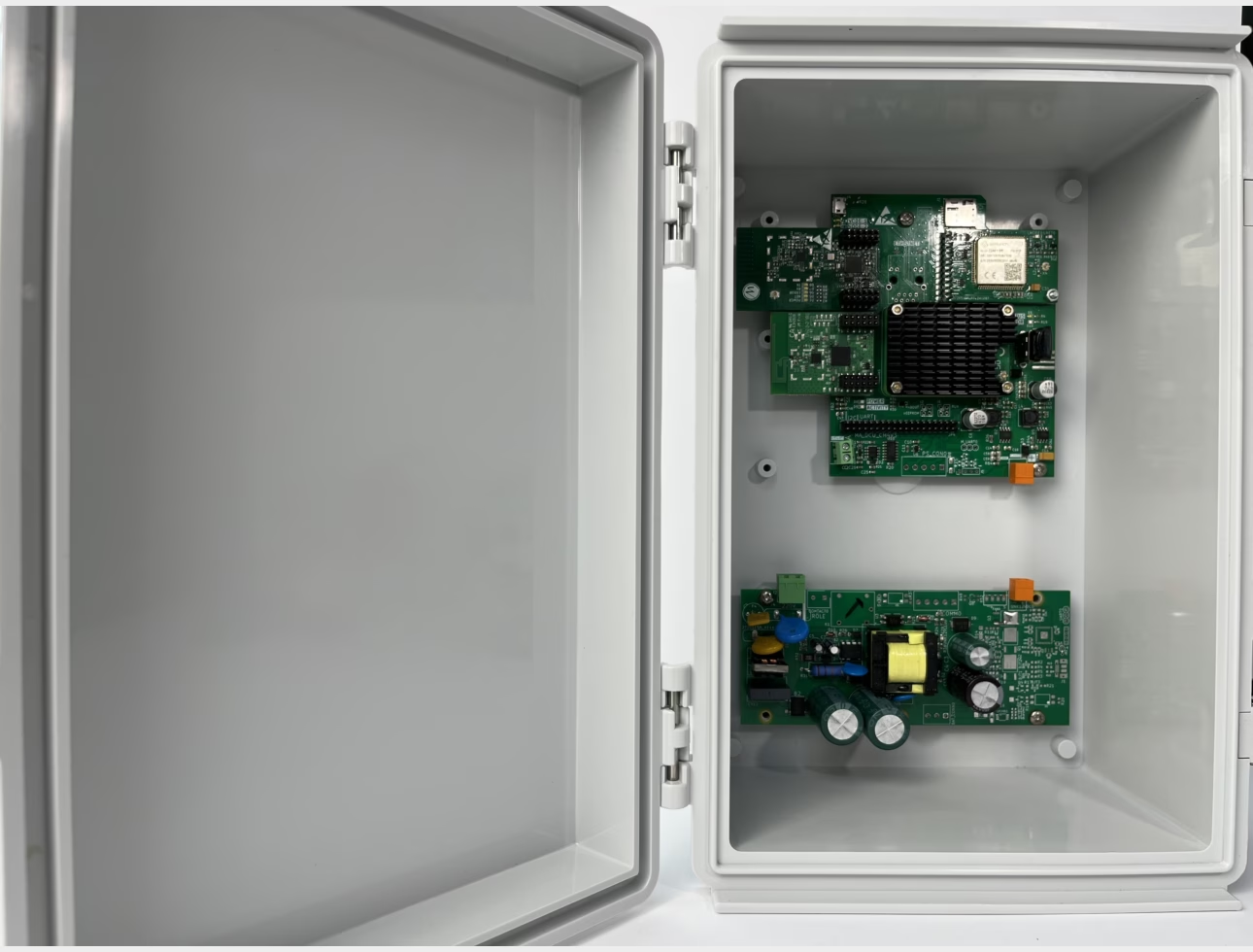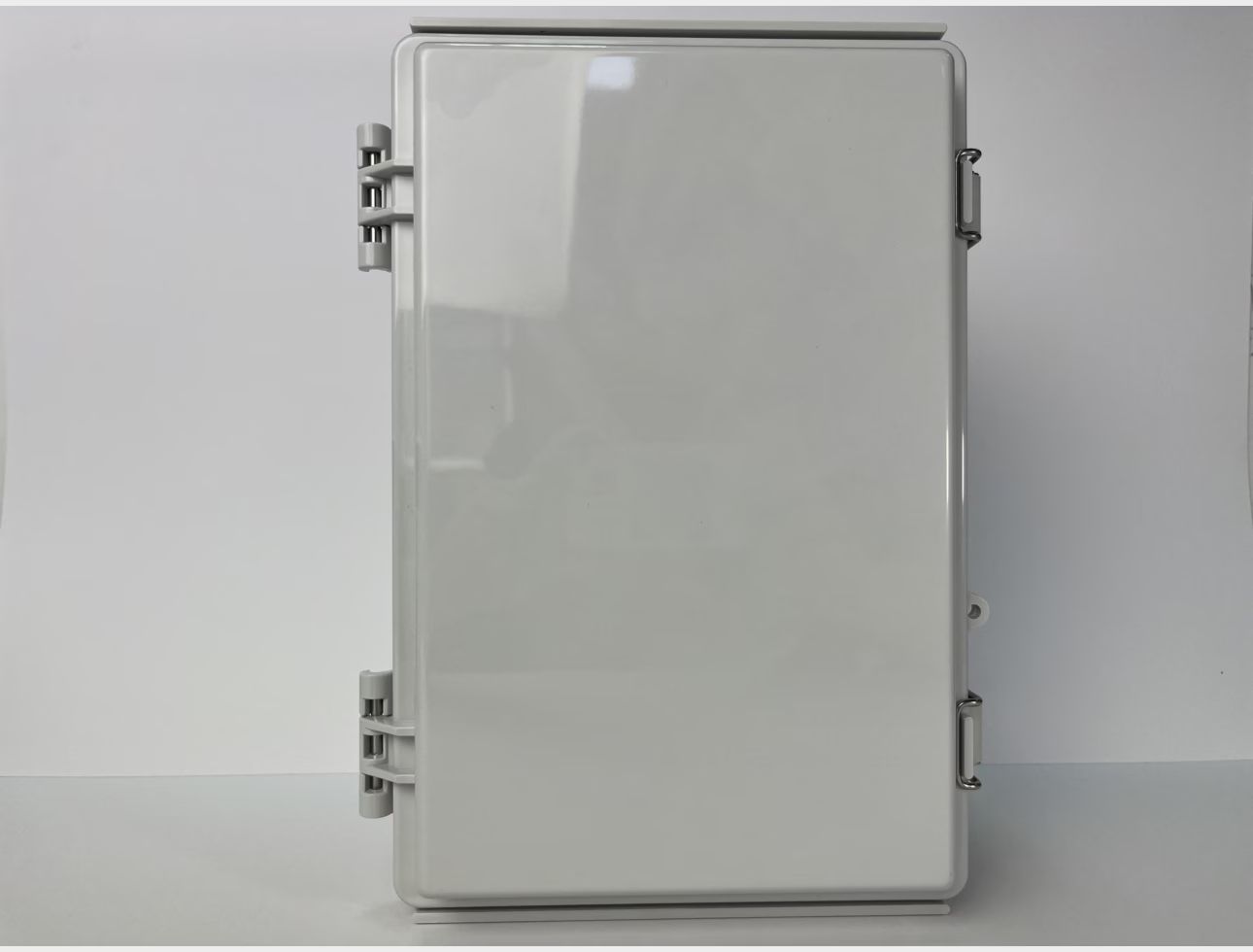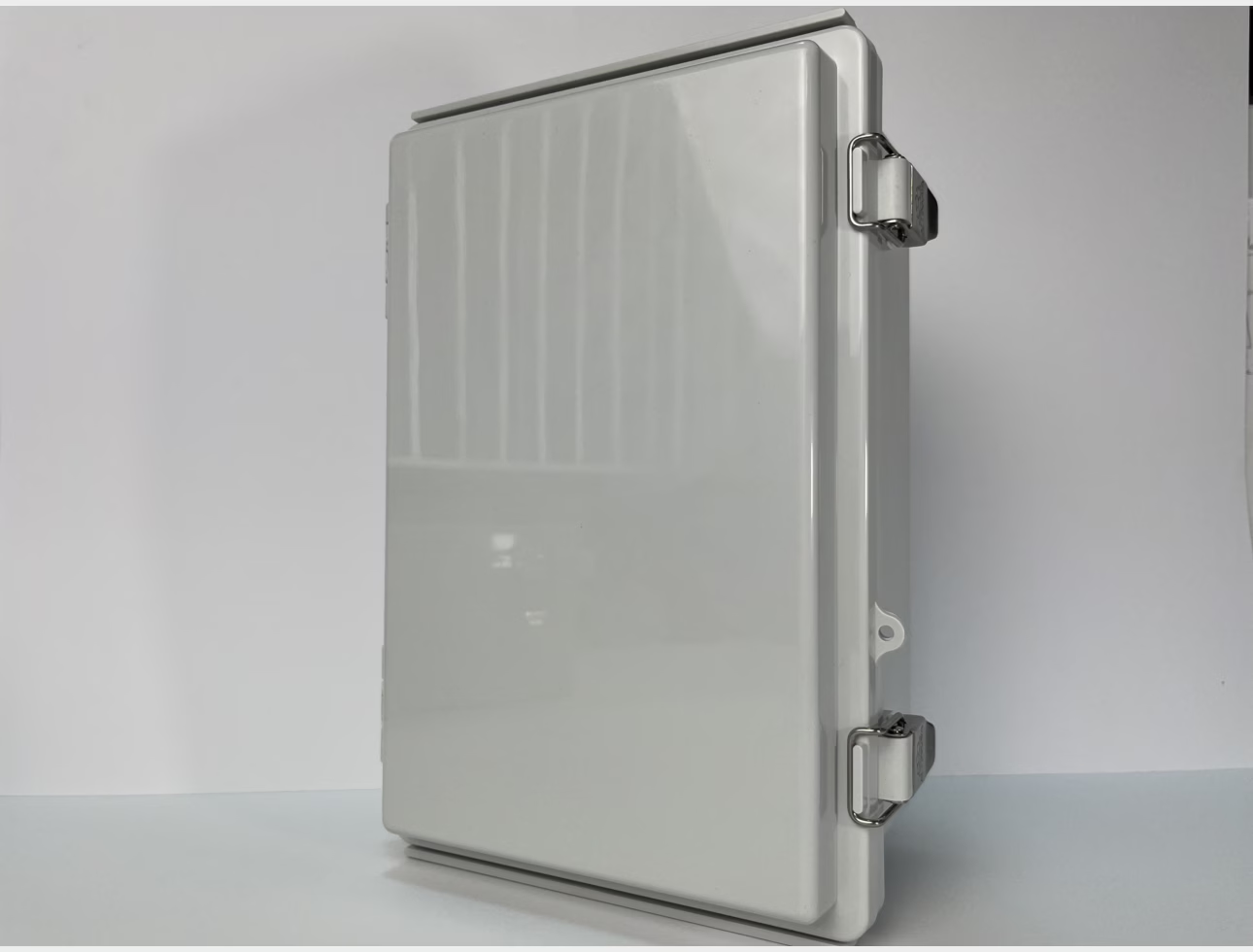Hardware Specifications:
Embedded Computer: Raspberry Pi Compute Module 4 (CM4) at its core, featuring a Broadcom BCM2711 quad-core 64-bit microprocessor.
USB Hub: Single CM4 USB interface expanded to four USB 2.0 interfaces (480 Mbit/s) via a dedicated USB hub IC, connecting GSM module, RF Modems, and Flash Memory.
Communication Modules:
4G/LTE Modem: GOSUNC GM196 LTE module (Nano SIM compatible) for data transfer to central web services. Features status LEDs and supports USB 2.0 and UART for data and debugging. Supports various LTE FDD, LTE TDD, and GSM bands.
RF Modem Connectivity: Two dedicated connectors for U-MOTE RF Modem modules. Each modem connects via USB for data transfer and UART for programming/debugging. Additional GPIO connections enable CM4 to reset and program modems.
RS-485 Interface: Integrated RS-485 driver for data transfer from ADC (Analog-to-Digital Converter) cards via CM4's UART interface, also supporting software updates for ADC cards.
Ethernet Port: RJ45 Ethernet port for internet access and local network access, protected by TVS diodes against voltage surges. Supports 300 Mbps communication with status LEDs.
Power Subsystem: Two switched DC-DC voltage regulators (4.2V for GSM module, 3.3V for CM4 and other ICs) from a 12V input, ensuring low-noise power delivery.
Uninterruptible Power Supply (UPS): Dedicated UPS module to ensure data integrity during power outages. Supplies 12Vdc at 2A to the main control board. Equipped with LiFePO4 (LFP) batteries for at least 4 hours of backup power. Includes an RP2040 microcontroller for battery management, cell balancing, fan control, and relay control for external loads.
Storage: Flash memory (via USB-A port) for device logs and backups, separate from the read-only eMMC flash for the operating system, ensuring system stability.
Additional Interfaces: Optional I2C and SPI connections for various sensors. Fan and relay outputs controllable by CM4 via the UPS module.
Software Details:
Operating System: Runs a Linux-based operating system on the Raspberry Pi Compute Module 4.
Network Interface Drivers: Software-based IPv6-enabled network interface drivers facilitate the transfer of RF mesh data packets to the Linux operating system's TCP/IP stack.
Data Collection & Management Application: This application handles data collection, control, and reporting for various UDP services. Processes commands received from the central Meter Management System and transmits them to the RF mesh network.
System Integrity & Health Monitoring:
Operating System Protection: The CM4's eMMC flash memory stores operating system files as read-only to protect system integrity. Data and log files are stored on an external flash memory.
Hardware Health Monitoring Modules: Additional software modules developed for the data collector to monitor hardware health, including 4G module connectivity and integrity checks for data received from the RF network.
Autonomous Operation: Ensures autonomous and stable operation by enabling automatic restarts of RF and modem interfaces when necessary.
UPS Control Software:
Communicates with the UPS module via serial port to monitor battery status.
Implements safe shutdown procedures for the data collector when battery charge becomes insufficient during power outages.
Manages the re-energization and safe restart of the main control board once grid power is restored.
Controls the integrated fan based on temperature readings for cooling and manages external relay outputs.
Communication Drivers: Implements drivers for RS-485, I2C, SPI, and relay interfaces to facilitate communication with peripheral hardware.
RF Modem Management: Supports programming and resetting of RF modems via dedicated GPIO connections from the CM4.
Key Features & Advantages:
Robust Data Aggregation: Centralized collection, processing, and secure storage of diverse data streams.
Multi-Interface Connectivity: Seamless integration with RF mesh, 4G/LTE, Ethernet, and RS-485 for flexible deployment.
High Availability: Integrated UPS with intelligent battery management and safe shutdown/startup procedures for continuous operation.
Data Integrity & Security: Local data storage, read-only OS partitions, and secure data transfer protocols (IpSec, VPN, HTTPS) to the central server.
Remote Management: Supports remote software updates for RF modules and provides a local web interface for network status monitoring.
Industrial-Grade Reliability: Designed for harsh outdoor conditions with IP67 enclosure compatibility and robust hardware.



